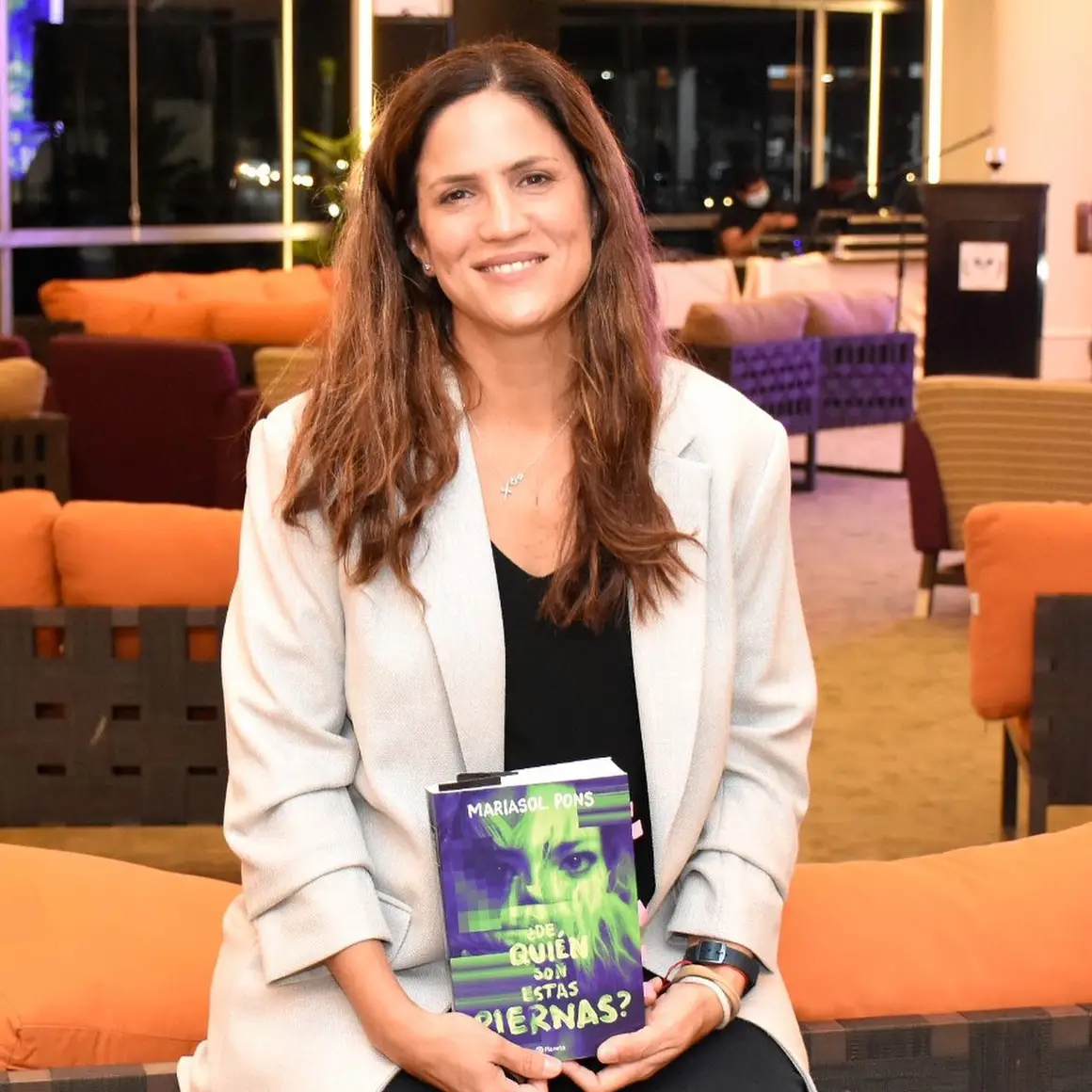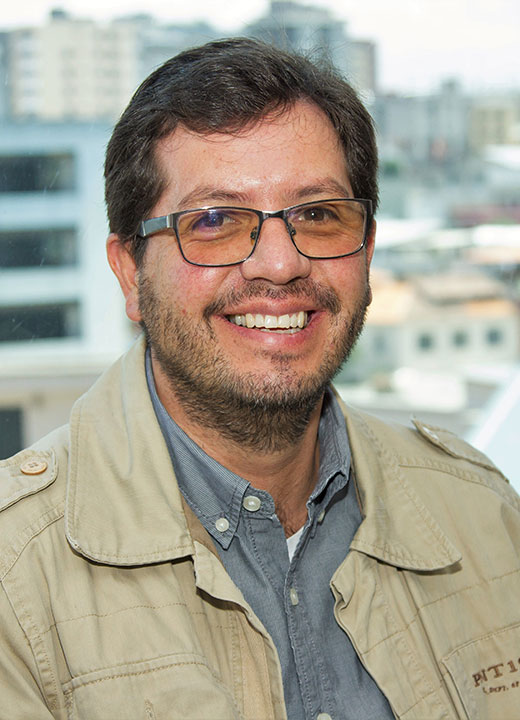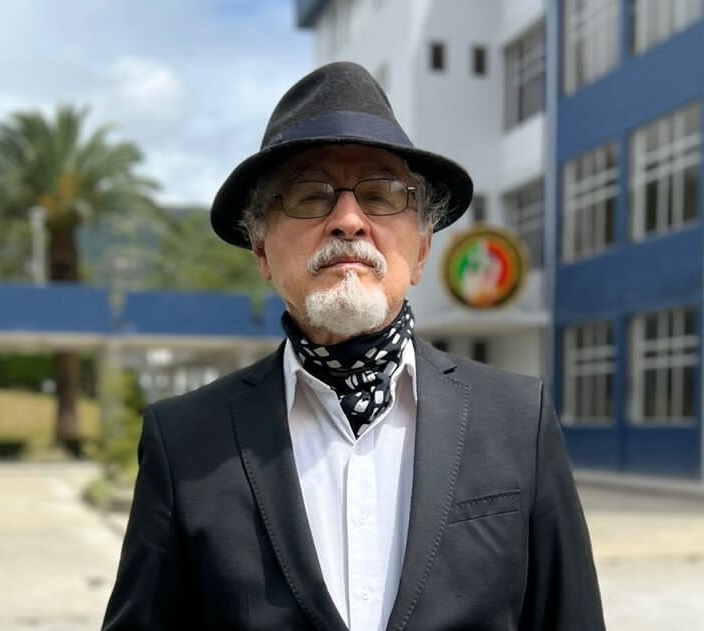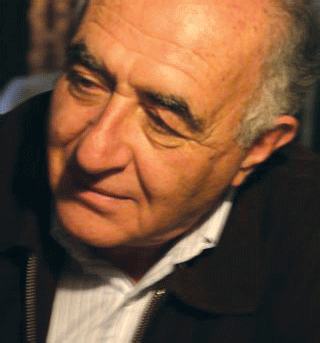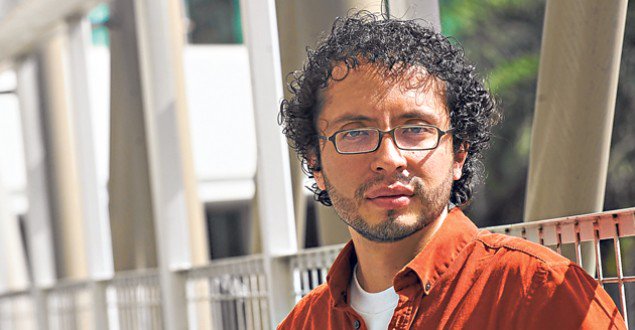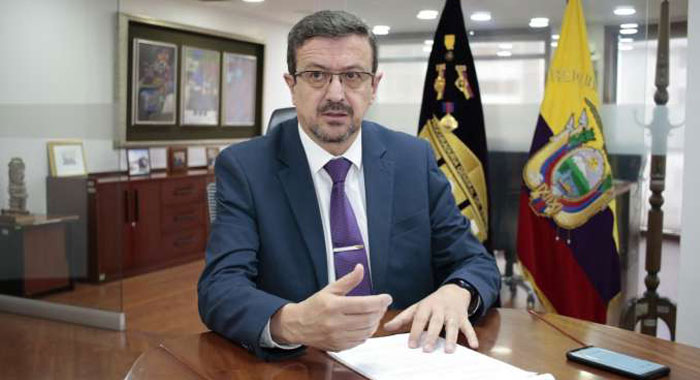Mariasol Pons Cruz (Guayaquil, 1979) is an Ecuadorian novelist known for her captivating storytelling. Pons has authored several notable works, including “La Chica” (2013), “El libro de Olga” (2017), and “¿De quién son estas piernas?” (2021). Her debut novel, “La Chica,” delves into the world of drug trafficking, while “El libro de Olga” draws inspiration from Bram Stoker’s Dracula and explores complex characters in historical contexts. In “¿De quién son estas piernas?” Pons ventures into the realm of the future, challenging notions of identity and autonomy. Pons’ distinctive writing style and ability to engage readers have garnered recognition and acclaim in the literary community. Currently, she resides in Guayaquil and works as an editorialist for the newspapers Diario Expreso, Diario de Manabí, and La República.
Continue reading “Mariasol Pons”Category: Ecuadorian Novelists
Ecuadorian novelists, including stories, translations, bibliographies, biographies, interviews, articles, and much more. Novelists from Ecuador in one place.
Raúl Rojas Hidalgo
Raúl Rojas Hidalgo (born 1944) is an Ecuadorian poet and novelist. His collection of poetry, “Como el agua” [Like Water], was published by the House of Ecuadorian Culture in 1988. In 1990, his novel “Una buena razón para matar” [A Good Reason To Kill] was featured in the First Ecuadorian Novel Biennial. In 2004, Rojas published another collection of poetry called “Salmos de amor a las seis de la tarde” [Love Psalms at Six in the Evening].
Continue reading “Raúl Rojas Hidalgo”Pablo Escandón Montenegro
Pablo Escandón Montenegro (May 30, 1974) is an Ecuadorian fiction writer and social communicator with a PhD in Communication and Contemporary Information from the University of Santiago de Compostela, Spain. His research focuses on topics such as heritage, museums, memory recovery, and digital literature. He has served as a professor for both undergraduate and postgraduate programs at various universities in Ecuador, and is the director of Arsquitensis. Currently, he works as a full-time professor in the Communication area at Simón Bolívar Andean University in Ecuador.
Continue reading “Pablo Escandón Montenegro”Carlos Carrión
Carlos Alfonso Carrión Figueroa (Malacatos, Loja, January 25, 1944) is an Ecuadorian novelist and short story writer. He has won several prestigious literary awards, including the José de la Cuadra Award for his 1982 short story collection “El más hermoso animal nocturno” [The Most Beautiful Nocturnal Animal], the Joaquín Gallegos Lara Award twice, first for his 1995 short story book “El corazón es un animal en celo” [The Heart is an Animal in Heat] and later for his 2005 novel “¿Quién me ayuda a matar a mi mujer?” [Who’ll Help Me Kill My Wife?], which also earned him the “Lira y la Pluma” Award. Additionally, his work has been featured in various anthologies. In 2013, he won the Miguel Riofrío Award for his novel “La mantis religiosa” [The Praying Mantis]. Recently, in 2022, Carrión was honored with the Eugenio Espejo National Prize, the highest literary recognition in Ecuador.
Continue reading “Carlos Carrión”Matilde de Ortega
Matilde Cabeza de Vaca de Ortega, known in the literary world as Matilde de Ortega, was an Ecuadorian writer. Her epistolary novel, “Lo que deja la tarde” (1955), is the sixth novel ever authored by a woman in Ecuador and the first by a woman to be published by the House of Ecuadorian Culture (CCE). In his 1976 study entitled, “Amazons and Artists: A Study of Ecuadorian Women’s Prose, ” American literary critic Michael Handelsman described her novel as: “the story of a woman who desires greater freedoms within the traditional framework of female life in Ecuador.” From 1957 to 1959, she served as the director of the CCE’s publishing house. In 1980, a short story by Ortega entitled, “El coche,” was published in an anthology entitled, “Cuentos fantásticos hispanoamericanos.”
Continue reading “Matilde de Ortega”Modesto Ponce Maldonado
Modesto Ponce Maldonado (Quito, 1938) is an Ecuadorian novelist, short story writer, and businessman. He began writing fiction in his later years. At the age of 60, he published his first collection of short stories, “También las arcillas” (1997), which was followed by a novel, “El palacio del diablo” [The Devil’s Palace] (2005), which won the Joaquín Gallegos Lara Prize for best novel of the year. The novel’s title was taken from the name of a brothel that formerly stood in colonial Quito’s La Ronda neighborhood. Using the pen name Sergio Lozada, his second novel, “La casa del desván,” was shortlisted for the prestigious Premio Iberoamericano Planeta-Casa de América de Narrativa award. The novel, released by Editorial Planeta in 2008, is a first-person account of a schizophrenic man’s thoughts while he is institutionalized for his condition. In 2017, his novel “Adela” received honorable mention at the La Linares Short Novel Award. Ponce has also contributed to various literary magazines, including El Búho, Eskeletra, Kipus and Letras del Ecuador.
Continue reading “Modesto Ponce Maldonado”Wladimir Chávez
Wladimir Alfredo Chávez Vaca (Quito, 1977) is an Ecuadorian novelist, short story writer, and academic. He has lived in Norway for over two decades and currently serves as an associate professor of Spanish and Latin American literature at Østfold University College. Chávez’s literary work, which often explores themes of migration, identity, and exile, has garnered significant recognition. His short story collection En el corazón del silencio [In the Heart of Silence] won the Biennial Pichincha Prize in 2014, and his novel El olor de las flores quemadas [The Smell of Burning Flowers] was awarded the Miguel Riofrío National Literary Award in 2018. Some of his works have been translated into English and Italian.
Continue reading “Wladimir Chávez”Teodoro Vanegas Andrade
Teodoro Vanegas Andrade (Cuenca, December 21, 1926 – 2002) was an Ecuadorian novelist, journalist, editor, and poet who was a member of the Elan Group. He authored 4 poetry books, “Estación del abismo,” “Ubicación del hombre,” “Señales de la Erranza” and “El libro de los avatares” which was published posthumously. Some of his poems have been translated into Russian, Italian, French and English. He was a columnist for El Expreso newspaper, and was the editor of the literary magazines Antorcha and Paz. In 1971, his novel “La noche estevada” received first mention at the novel contest held by the journal El Universo. He was a member of the House of Ecuadorian Culture.
Continue reading “Teodoro Vanegas Andrade”Yuliana Ortiz Ruano
Yuliana Ortiz Ruano (Limones, Esmeraldas, 1992) is an Ecuadorian poet and writer. She has had several of her poems published in both printed and digital magazines. Among her published poetry books are “Sovoz” (2016), “Canciones desde el fin del mundo” (2018), and “Cuaderno del imposible retorno a Pangea” (2021). In 2017, Yuliana received an honorable mention at the international poetry festival “Poetry in Parallel Zero.” She was also awarded the National Literature Award in 2021 in the poetry category for her remarkable contributions to the field. Currently, she serves as an editor and anthologist for the online poetry magazine Cráneo de Pangea. Yuliana’s debut novel, “Fiebre de carnaval” (Carnival Fever), was published in 2022 and received critical acclaim. In 2023, she won the prestigious IESS First Novel Prize in Italy, which recognizes the best first novel by a Latin American author under the age of 35. As part of this award, her book will be translated into Italian. Her novel was also recognized as one of the recommended books of 2022 by the Spanish edition of Vanity Fair magazine and received high praise from author Mónica Ojeda, who named it her favorite novel of the year. Currently, Yuliana Ortiz Ruano resides in Guayaquil, Ecuador.
Continue reading “Yuliana Ortiz Ruano”Gonzalo Ramón
Gonzalo Ramón (Guayaquil, 1912 – Unknown) was an Ecuadorian novelist, poet, essayist, and literary critic. He is best known for his novels Tierra baldía (1957, Barren Land), which exposed the exploitation of Afro-Ecuadorians in banana plantations, Clavellina (1971, Little Carnation), which won a prize from the National Union of Journalists, and Guandal (1976, Swampland), which earned the National Literature Award. Ramón also wrote literary criticism, most notably on the Ecuadorian poet César Dávila Andrade, and his long poem Elegía de la creación, carta a mi hija (1965, Elegy of Creation, Letter to My Daughter) presents an ambitious exploration of the origins and evolution of life.
Continue reading “Gonzalo Ramón”ben aki
ben aki, pseudonym of Rodrigo Jurado (Ambato, Ecuador, 1967) is an Ecuadorian poet, writer, and university professor. He has published 7 poetry collections, including: “Tesis” (2006), “Telares” (2014), “Cartas desde la cárcel” (2015), “Inicios absolutos” (2016), “Querido señor presidente” (2017), “La piel que habito” (2018), and “Poemas para la tarde y el después” (2019). In 2021, ben aki published a biographical novel about his maternal grandmother, María Agripina Cruz Torres, entitled, “María Agripina.” He currently resides in Ambato where he is Professor of Communication and Academic Writing at the Catholic University of Ecuador.
Continue reading “ben aki”Íñigo Salvador
Íñigo Salvador Crespo (Quito, October 23, 1960) is a novelist, lawyer, public official, diplomat, and university professor. His debut novel “Miércoles Santo: un caso de Nuño Olmos” (2013), is a critically acclaimed detective novel set in Quito. His latest novel, “1822: La novela de la independencia,” won the Joaquín Gallegos Lara Prize in 2022, and was that year’s best-selling novel in Ecuador. He served as the Procurator General of Ecuador (PGE) from 2018-2022, and will serve as a judge in the Andean Community Court of Justice.
Continue reading “Íñigo Salvador”Mireya Romero Plaza
Mireya Romero Plaza de Bravomalo, aka Mireya de Bravomalo or Mireya Romero y Cordero (Quito, January 29, 1929 – July 2014) was an Ecuadorian poet, novelist, and feminist. In 1953, at the age of 23, she published a novel entitled, “La pena fuimos nosotras,” which was read by many women and that put her in the forefront of feminism in Ecuador in the 50’s. In 1956, she published a poetry book entitled, “Heliofina,” prologued by poet Francisco Granizo Rivadeneira. She sometimes used the pseudonym Marga del Río.
Continue reading “Mireya Romero Plaza”Laura Pérez de Oleas Zambrano
Laura Pérez de Oleas Zambrano, pseudonym Doña Manuelita (Quito, circa 1904-14 — circa 1981) was an Ecuadorian writer. She authored a novel, a collection of stories, two radio dramas, and an unpublished collection of poems. One of her significant works, published in 1959, is the novel “Sangre en las manos” (Blood on the Hands), which grapples with the moral complexities of abortion. This compelling narrative draws inspiration from a real-life incident, the trial of an obstetrician in Quito during 1938, charged with the death of a patient during a clandestine abortion. Her other notable work is a two-volume collection of stories entitled, “Historias, leyendas y tradiciones ecuatorianas” [Ecuadorian Stories, Leyends and Traditions] (1962).
* Because there does not appear to be agreement on the exact date of Laura Pérez’s birth or death, we have chosen to approximate the dates based on data from various sources, hence why circa is used above.
Continue reading “Laura Pérez de Oleas Zambrano”Margarita Dager-Uscocovich
Margarita Dager-Uscocovich (Guayaquil, October 31, 1967) is an Ecuadorian fiction writer, poet, and columnist. Her debut novel, “No es tiempo de morir” was published in Spanish in 2018 and in English in 2019. Her second novel “Las queremos vivas” (2021), deals with the global trafficking of women, and has Guayaquil and Charlotte, N.C as settings. Her short stories and micro-stories have been published in Spain, Mexico, Argentina, Uruguay and the United States. Her poems have been published in the online magazine labelmelatina.com. She is a columnist for the Destinos section of the online magazine La Nota Latina in Miami, FL and Revista Latina NC. She currently resides in Charlotte, North Carolina.
Continue reading “Margarita Dager-Uscocovich”